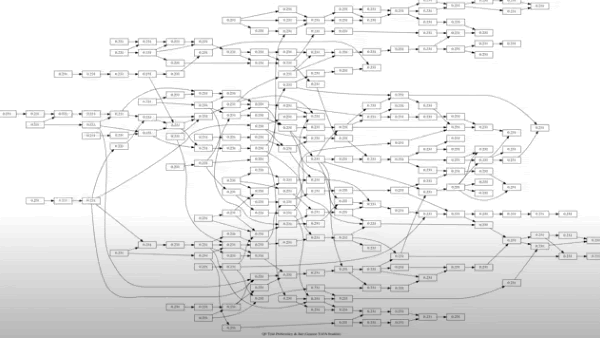How to improve maths instruction utilising mastery-based learning and technology for targeted differentiation
The lesson was going great. Most of my senior math students seemed pretty switched on to what I had just explained. That was until they had to perform an operation involving fractions. But they should have mastered fractions long ago, right?

The lesson was going great. Most of my senior math students seemed pretty switched on to what I had just explained. That was until they had to perform an operation involving fractions. But they should have mastered fractions long ago, right?
A call for change
Under the new Queensland senior curriculum and assessment policy, long-term retention of concepts has become increasingly important in preparation for external exams. Students retain what they understand, which all educators recognise when dealing with whole school numeracy improvement. But curriculum delivery is age-based, not ability-based. The system is designed to rank our students with the level of understanding being the variable.
So what are we teaching students about their mathematics education journey?
Mastery learning requires more of a focus on the individual student. In my previous article, I outlined how mastery-oriented learning was more aligned with a growth mindset and deeper understanding. This occurs when providing many opportunities for students to demonstrate mastery of content through regular formative assessment, which leads to better retention.
However, making a shift to mastery learning will require more instructional time on average. The time required for learning concepts becomes the variable while the level of understanding is fixed well above the average standard. Therefore, by definition, an increase in instructional time would be expected.
A blended approach
With advances in technology, many teachers are in favour of blending the conventional and mastery approaches to learning and assessment.

To implement mastery learning within our current teaching framework, we require a method of regular formative assessment that efficiently identifies current content knowledge across multiple year levels of the Australian Curriculum. Working with and supporting students to improve their understanding by addressing any knowledge gaps provides an avenue for achieving mastery of each curriculum outcome. This process can be teacher-defined but student-led by allocating opportunities for students to perform maintenance on their individual knowledge-base.
Alongside the pseudo-mastery learning approach of filling necessary gaps in understanding, teachers can also use the results of continuous assessment to differentiate their class for the current at-level curriculum topics. This overcomes persistent instructional planning centred around previous year level content and allows students to progress by providing teachers with the final say on how curriculum time should be spent.
Technology that fits
Making the continuous assessment of outcome-related skills manageable, Waypoints utilises machine-learning algorithms to efficiently monitor performance across the Australian Curriculum. Behind the scenes is a detailed map of all the content from grades 3 to 10A (see below). Designed for regular short check-ins that determine an estimated grade level for each student, the platform continues to test for understanding of content two years below and one year above the student’s level, growing with the student over time.

The results are two-fold:
- Actionable insights for students, parents and teachers identifying knowledge gaps affecting student understanding and linking directly to relevant adaptive learning tasks.
- Empowering teachers with reports that identify exactly what students do and don’t understand within the content being delivered right now, enabling targeted differentiation.
Early successes point to this technology creating big waves in mathematics education. I firmly believe that technology will never replace good teaching. What it can do, when done right, is empower great teaching.
A collaborative approach in QLD
Next month, teachers around Brisbane, the Gold Coast and the Sunshine Coast are invited to join a community of educators journeying to improve mathematics outcomes with Waypoints continuous assessment. Brisbane Grammar School, Merrimac State High School and Chancellor State College will each be hosting us to:
- explore early successes with continuous assessment
- provide practical advice on classroom implementation of digital teaching tools
- discuss the broader blended technology approach to teaching and learning
Register to attend these free sessions by clicking one of the links below. Catering and networking time provided.
- 17th May 4:00pm Brisbane Grammar School
- 19th May 1:15pm Chancellor State College
- 20th May 4:00pm Merrimac State High School
Looking forward to seeing you at one of these events soon!
This article was first posted on LinkedIn.

